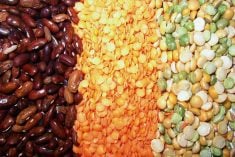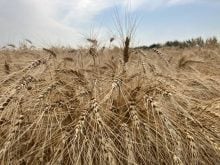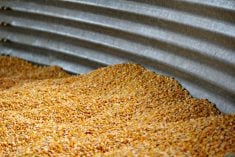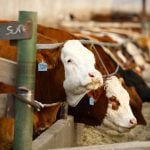Farmers who’d hoped to build up Prince Edward Island’s milling wheat acres have reportedly dumped thousands of tonnes of wheat due to what’s now been deemed a “misprint” in a memo from one of the farmers’ principal customers.
Wes Sheridan, P.E.I.’s acting agriculture minister, said in a joint statement Friday with Dover Mills’ vice-president of operations, Stan Thomas, that the company’s purchase standards were “miscommunicated” to farmers.
The memo had said that the acceptable level was one part per million (ppm) deoxynivalenol (DON) and a one per cent level of fusarium-damaged kernels in the wheat grade.
Read Also
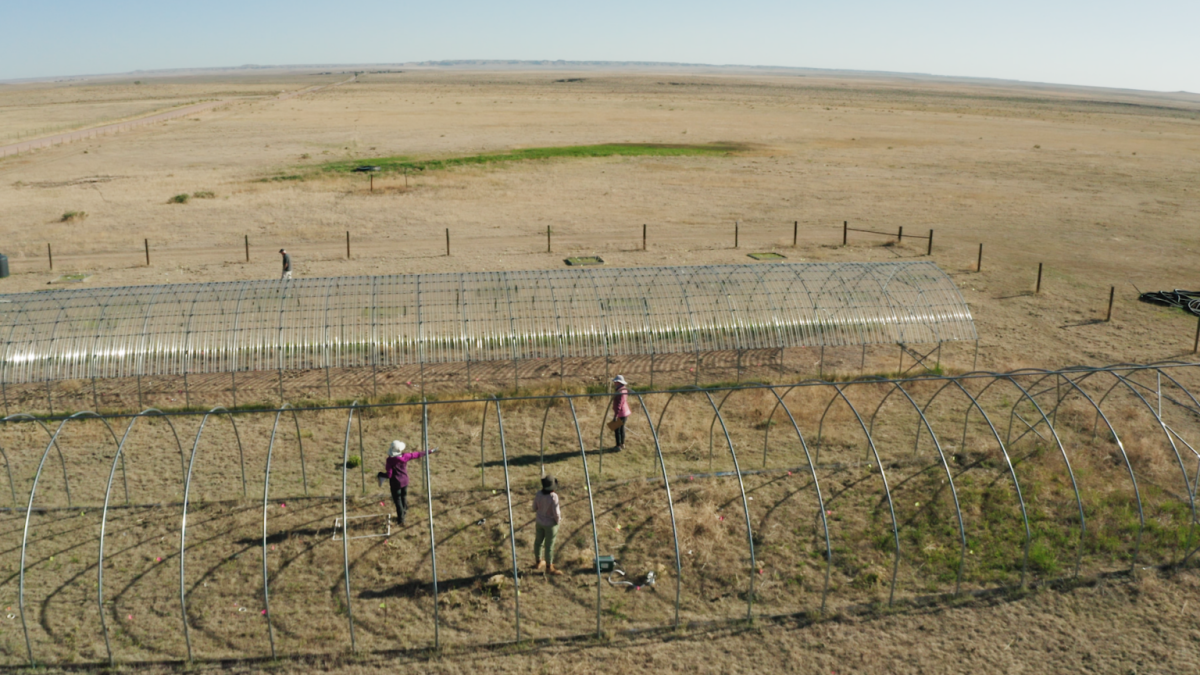
Prolonged drought causes unprecedented productivity loss: Study
Colorado State University — Extreme, prolonged drought conditions in grasslands and shrublands would greatly limit the long-term health of crucial…
The Canadian Food Inspection Agency’s maximum allowable level for DON, a toxin that develops in fusarium-infected wheat and barley, is two ppm and has been for years.
Thomas said in the province’s statement that Dover Mills’ standard remains the same as the previous year.
However, according to news reports last week, farmers took the original memo to mean either Dover Mills or CFIA had changed its standards for acceptable DON levels. Having experienced higher levels of fusarium this year, farmers thus began dumping what CBC described as “thousands of tonnes of wheat” in their fields.
One CFIA official told CBC Wednesday that the agency’s DON limits hadn’t changed in decades. “The bottom line is CFIA has not instructed the mills to refuse wheat, contrary to some of the reports,” program manager Ron Arsenault was quoted as saying on CBC.
“Quickly resolved”
Officials with Dover, which since Feburary has been owned by Winnipeg-based Parrish and Heimbecker, met with Sheridan Thursday in Halifax to resolve the issue.
“Because of the strong relationship between Dover Mills and the Prince Edward Island Grain Elevators Corporation, this perceived conflict was quickly resolved,” Sheridan said Friday. “I was pleased with the opportunity to meet face-to-face with Dover Mills to reach an understanding on the issue.”
Thomas, whose employer operates flour mills at Halifax, Saskatoon and Montreal and at Acton, Ont., east of Guelph, said in the province’s statement that he apologized for the misunderstanding, and looks forward to continuing to purchase milling wheat from P.E.I. growers.
“There has been a growth in milling wheat production on Prince Edward Island over the past few years,” Thomas said. “It is hoped that this unfortunate incident does not hamper the future growth of this industry.”
CBC said Friday that provincial ag officials in P.E.I. were trying to determine how much milling-grade wheat had been dumped due to the error.
But the broadcaster also quoted Sheridan as saying it’s been a “bad year” for fusarium in the province and much of the dumped wheat was over two ppm for DON in any case.




